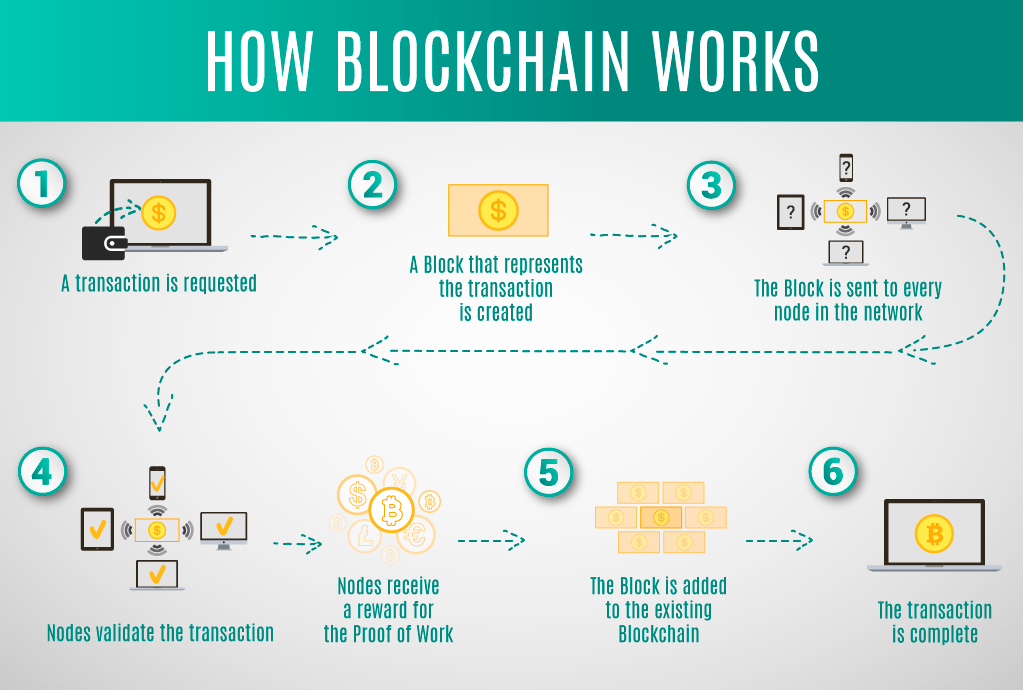What is Blockchain and Its Role in Crypto Investing?
You have probably heard the term Blockchain once or twice when doing your investing research. If you have done some research you’ll know this doesn’t affect dividend investing but it is worth knowing. This style of encryption is geared toward cryptocurrency and cryptocurrency can be a good investment if you do it right. I always kick myself when I think about my younger days when my dad came up to me and wanted to invest ten grand into bitcoin when it was still around $400-$500 per coin. I did not do my research and look at bitcoin now. Moral of the story, research is key! But, without further delay, let me explain what is Blockchain.
Blockchain is a data storage technology that makes it difficult to hack or manipulate the system. A blockchain is a distributed ledger that copies and distributes transactions across the network typically used in cryptocurrency. It is a system for storing public transactional records, also known as blocks, in several databases, referred to as the “chain,” in a network of peer-to-peer nodes.
Blockchain technology is secure and sturdy, making it suitable for storing and processing sensitive data. The revolutionary part of blockchain is that processes are executed by many computers at the same time, rather than just one. A blockchain is not updated and authenticated by a single person regularly but by hundreds, thousands, or even millions of community members.
How Does A Blockchain Work?
A blockchain is similar to spreadsheets where data is entered and stored. The primary difference between a normal spreadsheet or database and a blockchain is how data is structured and distributed. Similar to a company´s ledger, into which every cash movement is monitored; in this specific case we are talking about cryptocurrency. When it is full, the data is encrypted and converted into a hexadecimal number known as the hash.
The hash is subsequently inserted into the following block header and encrypted with the rest of the block’s information. It produces a chained-together sequence of blocks.

What Is The Process Of Transaction?
Transactions follow a distinct protocol depending on the blockchain on which they occur. For example, when you initiate a transaction on Bitcoin’s blockchain using your Bitcoin wallet, the program that provides an interface for the blockchain begins a series of events.
A transaction is transmitted to a memory pool In a Bitcoin, which remains and is processed until a miner or validator picks it up. When a transaction is added to a block, it is closed and encrypted via an encryption mechanism. The mining process then begins.
What Is The Process Of Mining?
A new transaction is entered, and the transaction is relayed to a global network of peer-to-peer computers. It will then solve the equation to confirm the validity of a transaction, once the transaction is legitimate, they will be clustered together into blocks. The blocks will be chained together creating a history of all permanent transactions. Finally, the transaction will be done.
What Is Blockchain In Cryptocurrency?
Bitcoin, Ethereum, Ripple, Litecoin, Polcadote, and many other wide-scale cryptocurrency coins use blockchain to process transactions safely. It is the primary use of the technology.
Blockchain technology, similar to a digital ledger, records and confirms Bitcoin trades. When you buy, trade, or exchange cryptocurrency, a blockchain collects and records the information. This information is stored in a safe location that is not overseen or controlled by a centralized government.
Conclusion
The bottom line is that blockchains can assist in increasing security, transparency, and efficiency across a wide range of businesses. This can result in a variety of advantages, including reduced fraud, increased efficiency, and increased transparency.
However, there are significant obstacles that must be overcome before blockchain may be extensively embraced. Scalability, privacy, and regulation are among the challenges. However, the potential benefits of blockchain are substantial, and the technology is expected to expand and be embraced in additional industries in the future.
